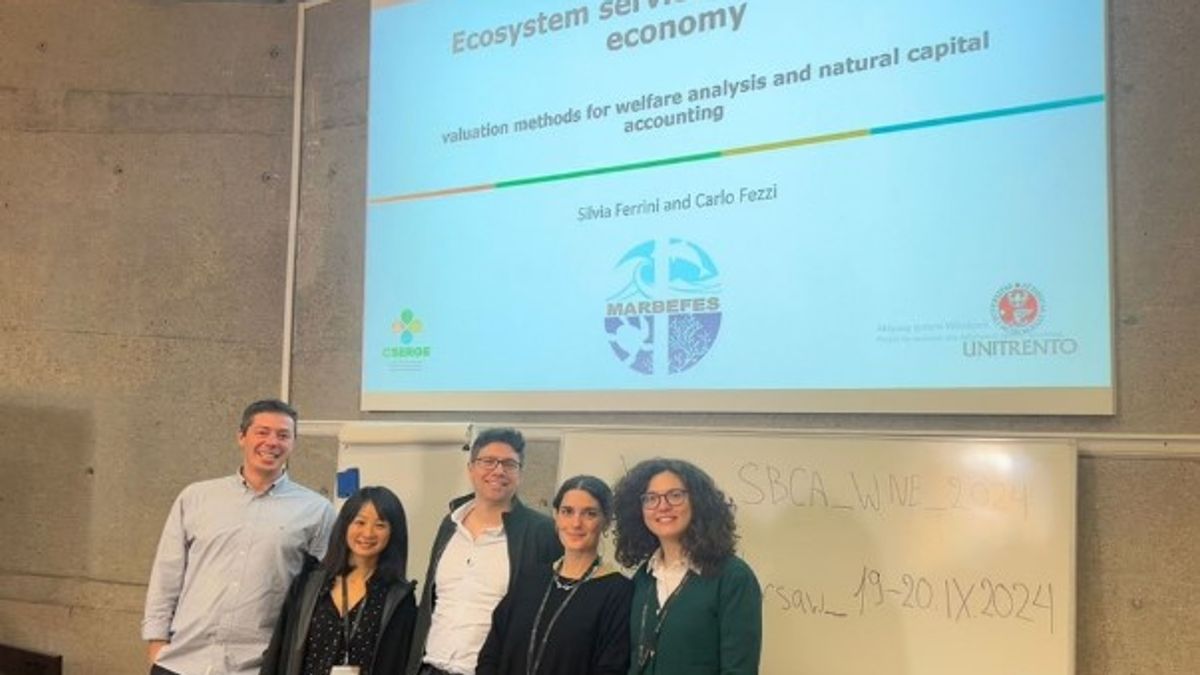
MARBEFES thematic session on ecosystem services and blue economy
Overview
On September 19-20, 2024, the Society of Benefit and Cost Analysis (SBCA) 2024 European Conference took place in Warsaw, Poland. Professor Carlo Fezzi (UNITN) chaired a thematic session, co-organized with Professor Silvia Ferrini (UEA, UCL, and UNISI), titled: Ecosystem services and the blue economy: valuation methods for welfare analysis and natural capital accounting. The session highlighted the research conducted within the MARBEFES (Marine Biodiversity and Ecosystem Functioning leading to Ecosystem Services) project. The session was highly successful, addressing several critical issues related to environmental valuation and natural capital accounting. The discussions offered significant insights, with important implications for both economic theory and policymaking.
Aim of the thematic session
The primary aim of this session was to foster dialogue between the Society of Benefit and Cost Analysis (SBCA) and the System of Environmental Economic Accounting (SEEA) community. The objective was to advance methodologies in environmental valuation and accounting, and to explore their practical applications in both Cost-Benefit Analysis (CBA) and Natural Capital Accounting (NCA). These methods were essential for the effective management of coastal and marine resources, supporting the development of a sustainable blue economy. This aim aligned with the objectives of the MARBEFES project.
Contents of the thematic session
The thematic session contained four presentations. Each of them dived deep into a research question, as briefly summarized below.
- Gaetano Grilli (UEA): “A Decision support systems for marine management and planning with an application on offshore wind”.
Dr. Grilli presented a case study on UK offshore wind farms, examining the impact of this green energy infrastructure on changes in ecosystem services.
- Valentina Di Gennaro: “Assessing the ecosystem services provided by the Italian coastal ecosystem: preliminary accounting tables”
Dr. Di Gennaro (UEA) presented an ecosystem accounting case study on Posidonia oceanica in Italy, demonstrating how to map and assess the ecosystem services provided by the marine environment for accounting purpose.
- Nan Zhang (UNITN): “Imperfect information, endogenous on-site time and the welfare impacts of algal blooms on recreation”.
Dr. Zhang presented a case study in Klaipėda, Lithuania, exploring how algal blooms impact recreational behavior and measuring the welfare loss through the reduction of onsite time. The method is an extension to the single-site travel cost method, which is well-established in economic valuation.
- Alice Bartolini (UNITN): “The comparative travel expenditure method for ecosystem accounting”
Alice’s study proposed a new methodology which reconciles welfare valuation methods with the requirements of exchange values needed for accounting standards.
Highlights of this trip
Knowledge exchange
The two-day conference offered an exceptional platform for the exchange of knowledge across various dimensions of cost-benefit analysis, ranging from health and safety to carbon emissions and ecosystem services. It provided opportunities for the presentation of new research findings and facilitated discussions on their policy implications. Particularly, the conference session on Ecosystem services and the blue economy fostered the exchange of expertise in economic valuation and accounting methods related to marine ecosystem services.
Cultural Exchange
The University of Warsaw’s Faculty of Economic Sciences organized a two-hour city tour of Warsaw’s Old Town following the conference. This tour provided participants with a unique opportunity to explore the history of Warsaw through the architectural details of the Old Town, reflecting the city’s resilience through challenging times. In addition to sightseeing, attendees experienced traditional Polish cuisine, including Pierogi. This cultural immersion not only enriched the experience but also strengthened bonds among researchers, promoting potential future collaborations.
Conclusion
The session presented at the SBCA 2024 European Conference facilitated meaningful knowledge exchanges on economic valuation methods and natural capital accounting, bridging the gap between researchers and practitioners. The case studies on offshore wind farms, Posidonia oceanica, algal blooms, and comparative travel expenditure method highlighted the practical challenges and policy implications of managing coastal and marine resources in a sustainable manner.
Furthermore, the session promoted the ongoing dialogue between the SBCA and SEEA communities, encouraging collaboration in the development of more robust tools and methodologies for economic valuation. These advancements support both cost-benefit analysis and natural capital accounting, fully aligning with and reinforcing the goals of the MARBEFES project.
Beyond the academic discourse, the session provided valuable insights for policymakers aiming to balance environmental sustainability with economic development, particularly within the framework of a sustainable blue economy. The cultural and social exchanges further enhanced cooperation among participants, laying the groundwork for future collaborations in research and policy.
